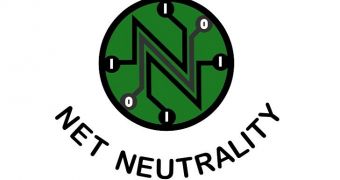The world is fighting to regain freedom of the Internet, but it really doesn’t seem like legislators and those in charge of making the rules really want for this to happen.
In the past few months alone, the principle of net neutrality has dominated the tech news. First, it was the fact that a judge in the United States basically took away the FCC’s right to enforce net neutrality rules because of the legal status of Internet Service Providers.
Then, the European Union struggled to come to an accord on what the new Internet bill should contain and how net neutrality should be handled. Thankfully, the EU has managed to get it right and prevent ISPs from charging people differently for the services they need and to also stop them from asking additional fees from content creators for more bandwidth.
The situation in the United States, however, a country that should at least try to set an example for the rest of the world especially since it proclaims control over the Internet, is getting out of control and downright embarrassing.
The latest information indicates that the FCC is taking the longest road possible in the name of net neutrality and still managed to end up in the wrong place. Basically, the FCC had three options in dealing with net neutrality after the court banned it from enforcing the principle on ISPs.
The first option was the obvious – appeal the court’s decision. Certainly, another judge could have seen things differently had the case ended up on the table of someone with a little more knowledge about the world of tech, even though this seems to be a rare occurrence in the United States, despite the high number of cases going on between companies in this area of activity.
If the appeal failed, then the case could have been taken over to the Supreme Court, which would have been quite likely to allow the FCC to do what it was needed to make sure that net neutrality was a fact, given the strict promises made by the White House regarding this issue.
The second option was to take the shortest road to obtain control over the situation once more. This was to change the status of Internet Service Providers into common carriers. This is true, after all, since over the past decade, the Internet has become nothing more than a utility; just like water, gas, electricity and phone landlines.
By doing this, the FCC would have had the right to enforce net neutrality rules. It would also have been the easiest way since it was basically just paperwork.
The third and worst option (and obviously the one chosen by the committee) was to make a new set of rules that revolved around the federal court decision taken in January.
Reports indicate that the FCC is getting ready to present a new set rules that would basically allow ISPs to charge more to high volume content providers. One good example for this is the deal signed by Netflix and Comcast and which Netflix has been throwing rocks at ever since the ink dried on the contract. This is because the company was basically bullied into the deal since streaming speeds were dropping faster than Bitcoin prices after Mt. Gox filed for bankruptcy.
Comcast argues that it’s only normal for this to happen, when that’s not the truth at all.
As an ISP, you, as a company, take on the responsibility to deliver a fast Internet connection to your customers, customers who pay a monthly subscription fee that is most often than not excessively large.
This should happen under all circumstances, regardless of what those particular customers choose to watch, regardless of whether they just visit text-based sites all day long, play World of Warcraft online or binge on Netflix and YouTube.
What ISPs are doing right now and hope to be allowed to do forever is take money from everyone. On one side, there are the paying customers who believe they have already done enough to get access to whatever content they want, and then there are the companies that the ISPs bully into deals that shouldn’t happen.
Comcast argues that heavyweight services such as Netflix require a lot of volume and speed and that calls for better infrastructure and basically, they’re just not willing to pay for this out of their own pocket.
Furthermore, by allowing such companies to charge certain services in order for them to gain access to the faster track to send content to users, smaller companies are at a disadvantage and this takes a toll on the very consumers that the FCC is trying to protect.

 14 DAY TRIAL //
14 DAY TRIAL //